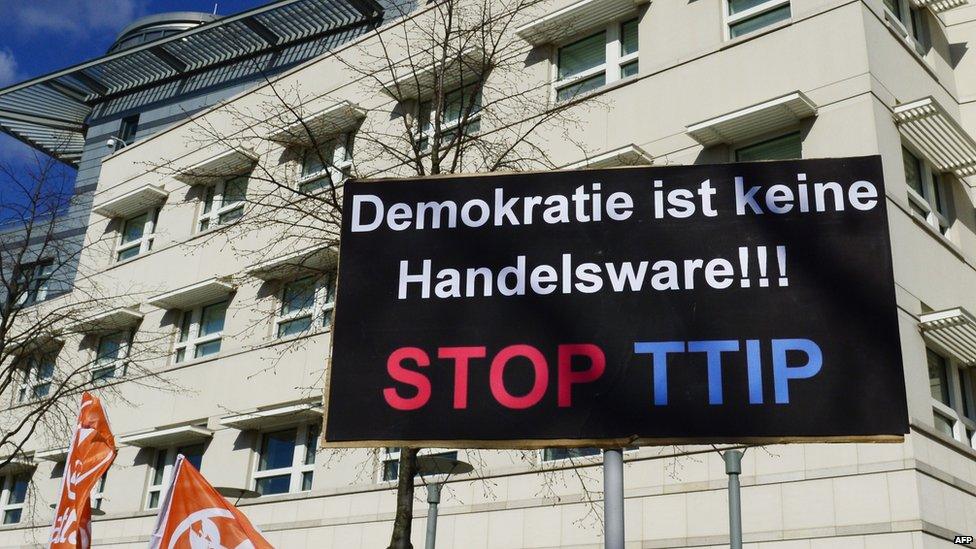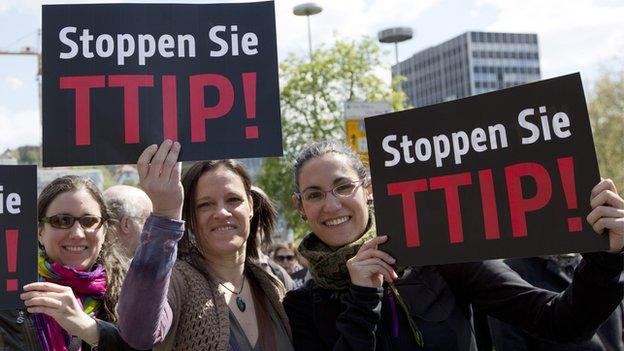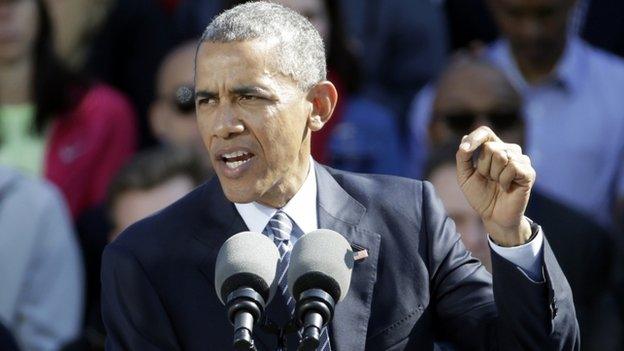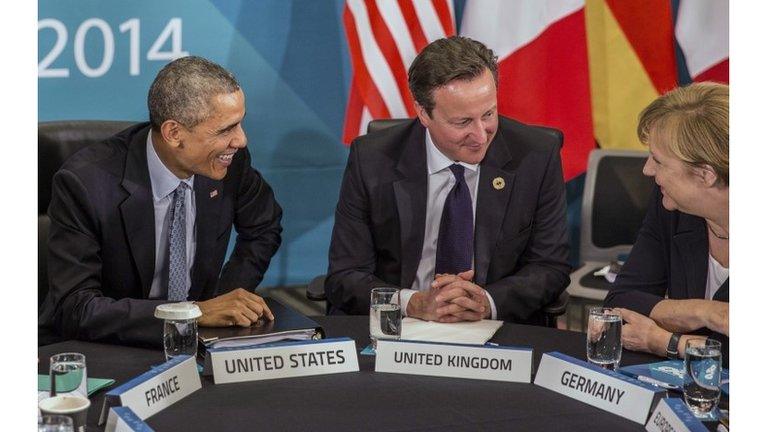TTIP talks: Transparency call for EU-US trade disputes
- Published

"Democracy is not for trading!" - anti-TTIP protest outside the US embassy in Berlin
A proposed EU-US free trade deal must not give big firms the power to sue governments in private, secretive courts, the European Parliament says.
Investor-state disputes must be settled publicly and transparently, the parliament's new recommendations say.
The recommendations, external were redrafted after MEPs put forward more than 100 amendments. Fierce arguments continue over the trade deal, known as TTIP.
MEPs will vote on TTIP on Wednesday. A final deal could be reached next year.
The TTIP - which stands for Transatlantic Trade and Investment Partnership - is being negotiated by the European Commission - the EU's top regulator - but parliamentary approval will be required to make the deal law.
The Commission estimates that by 2027 it could boost the size of the EU economy by €120bn (£85bn; $132bn) - equal to 0.5% of GDP.
The EU Trade Commissioner, Cecilia Malmstroem, voiced support, external for the parliament's recommendations, calling the document "a vital basis for that negotiation".
TTIP: What an EU-US trade deal means for your food
Transparent justice
One of the thorniest TTIP issues is investor protection. There is widespread opposition to commercial arbitration panels, called Investor-State Dispute Settlement (ISDS).
Critics say that even the threat of a legal case from a powerful corporation could have a "chilling" effect on national legislators as they try to regulate public services, such as healthcare and transport.
Many anti-TTIP protesters in Europe fear that such a deal could fuel a "race to the bottom", watering down hard-won EU standards in areas like food safety and workers' rights.
The MEPs' recommendations reject ISDS as a model for settling trade disputes. Instead, they call for treatment of cases "in a transparent manner by publicly appointed, independent professional judges in public hearings".
TTIP should also "trust the courts of the EU and of the member states and of the United States to provide effective legal protection".
Supporters of ISDS say it was designed to protect Western firms from abuses, such as arbitrary expropriation, in states with inadequate judicial systems.
But opponents argue that courts in the EU and US have high legal standards, and that businesses should seek redress there, not in separate tribunals.
"Now it is clear that ISDS has to be replaced by a public court," said the parliament's lead negotiator, external on TTIP, German Socialist Bernd Lange.
- Published7 July 2015

- Published10 June 2015

- Published28 May 2015

- Published13 May 2015

- Published18 December 2014
